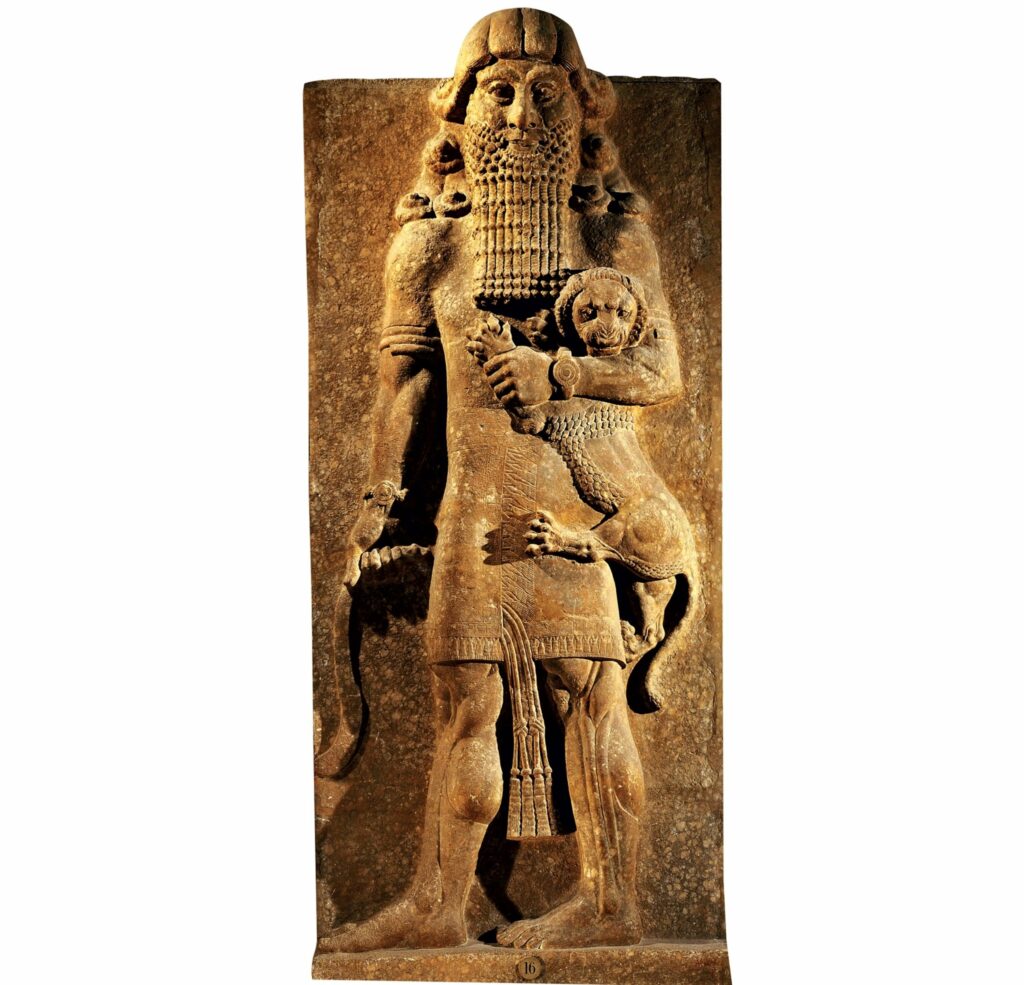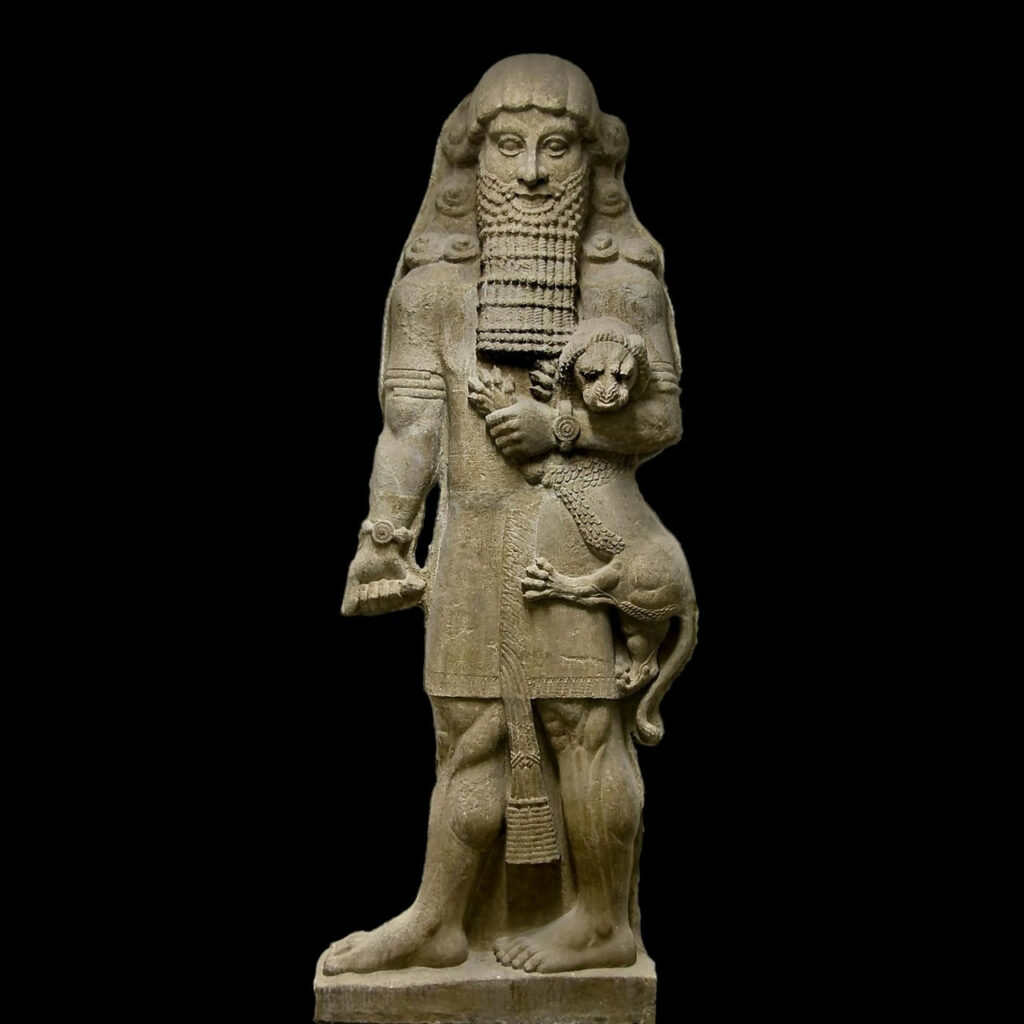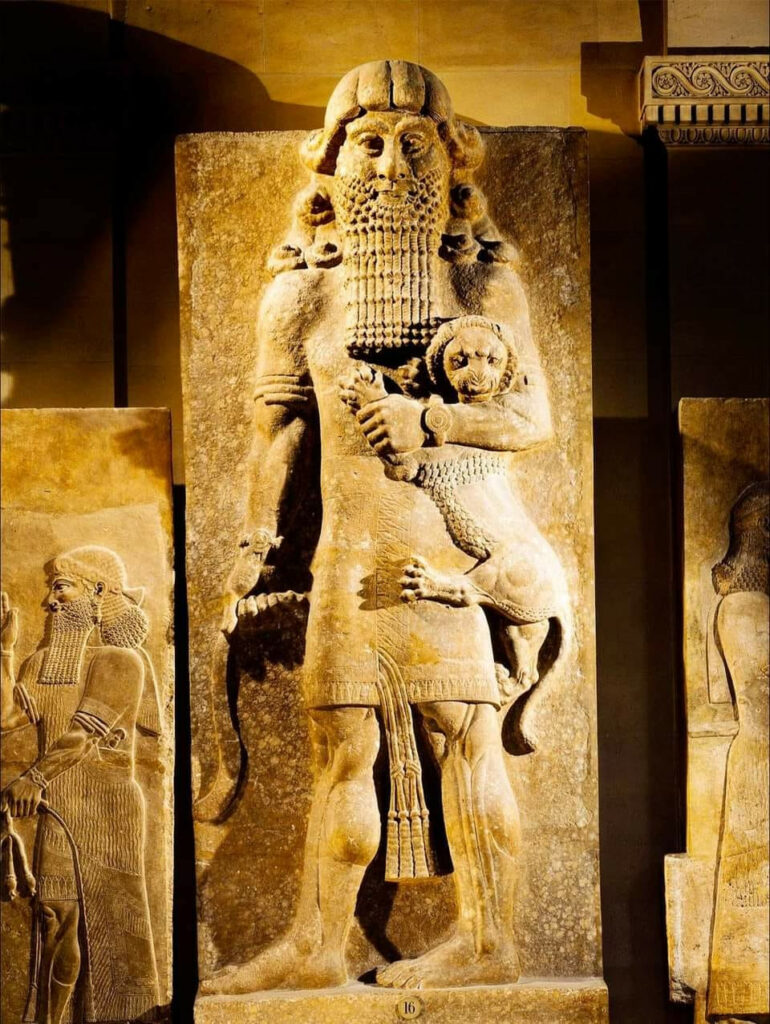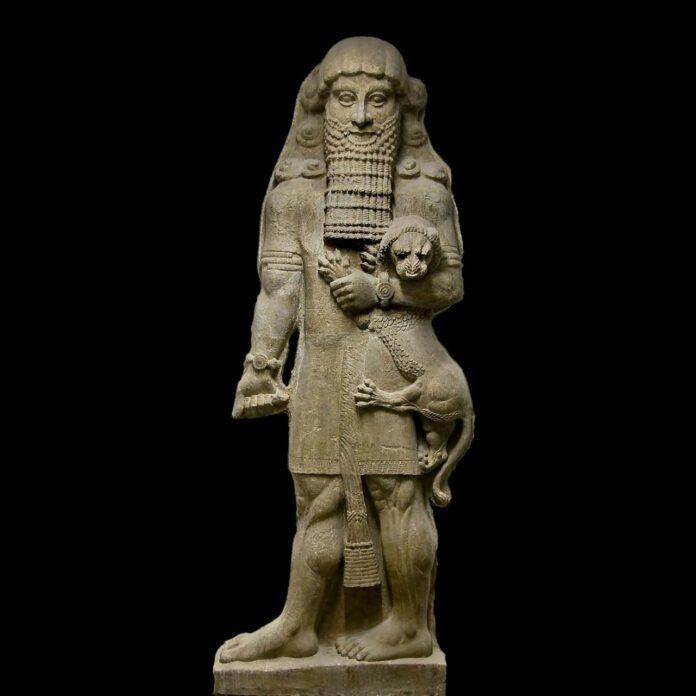The Legendary Demigod King
A Restless Soul Seeking Meaning

In the ancient city of Uruk, nestled along the Euphrates River, a king named Gilgamesh ruled with unparalleled might and wisdom. He was said to be two-thirds divine and one-third mortal, a demigod whose strength and prowess were unmatched. From a young age, his legendary strength allowed him to fell wild beasts with a single blow and wrestle lions into submission. Yet, despite his god-like abilities, Gilgamesh felt a void within him, yearning for something beyond mere mortal accomplishments.
The Epic Journey
Friendship Forged in Battle

The Epic of Gilgamesh, an ancient poem thought to be over 4,000 years old, recounts his most famous exploits. It begins with the people of Uruk growing weary of their king’s arrogance, leading the gods to create Enkidu, a wild man of equal strength, to be Gilgamesh’s rival. When they finally met, their battle shook the earth until they collapsed in mutual respect, forging a deep and abiding friendship. Together, they embarked on heroic quests, including the journey to the Cedar Forest, where they vanquished the fearsome guardian Humbaba, an act that brought both glory and divine retribution.
The Quest for Immortality

The gods decreed that Enkidu must die as punishment for their defiance, plunging Gilgamesh into profound grief and sparking a quest for immortality. He could not bear the thought of his own mortality, the inevitable end that awaited him. His journey led him to Utnapishtim, the survivor of the Great Flood, who revealed that immortality was a gift granted only by the gods and could not be attained through human effort. Understanding this, Gilgamesh returned to Uruk, accepting his mortal fate but resolved to leave a lasting legacy.
The Enduring Impact
A Lasting Legacy

Gilgamesh focused his efforts on ruling wisely, constructing magnificent walls around Uruk, and ensuring his people’s prosperity. In doing so, he realized that true immortality lay not in living forever but in the enduring impact of his deeds and the stories told about him. The Epic of Gilgamesh, one of the oldest known works of literature, remains a testament to the timeless quest for meaning, friendship, and the acceptance of human limitations. Gilgamesh, the legendary king of Uruk, lives on through the words etched into clay tablets, a hero whose story continues to inspire and captivate the hearts of those who hear it.

